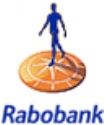 Increasing Competition to Face Europe’s Dairy Farmers. Farmers in countries with more integration and supply chain coordination such as China will increasingly compete with EU dairying on account of economies of scale, believes Rabobank agribusiness.
Increasing Competition to Face Europe’s Dairy Farmers. Farmers in countries with more integration and supply chain coordination such as China will increasingly compete with EU dairying on account of economies of scale, believes Rabobank agribusiness.
Report on Dairy
Europe’s dairy supply chain is expensive to operate because of administration and management costs, according to Rabobank’s report A New Dawn for Dairy.
Outlining goals for Europe’s post-quota future, Rabobank said integrated supply offers stability during market volatility, a feature of the markets Rabobank said is here to stay.
Reports indicate China’s production costs are now somewhere between that of Ireland and the Netherlands, with Rabobank stressing that investing in large integrated supply units will increase the competition EU farmers have to deal with.
Across the world
And while feed and wage inflation is greater in China, along with the cost of producing a kilo of fat or protein, Rabobank caveated: “the trend for improved efficiency of production is set”. Meanwhile, there has been a convergence of production costs across the world. Rabobank puts this down to land constraints in forage systems, increasing environmental burdens and labour costs. Rabobank sources indicate Dutch costs were double that of the New Zealanders in 2006 at 50 US cents per litre. Now, Dutch costs stand at around 57 cents with New Zealand at 43-44 cents.
European farmers can “take comfort” from this convergence, said the report.
However, the danger then is that, as there are smaller differences between dairying regions, global processors look to source more milk in target markets.
Processing capacity
The report explained: “Large integrated suppliers also offer considerable economies of scale, which will mean that, as the number of such units grows, supply from these sources will increasingly compete successfully on price with imports from Europe.”
Europe’s ability to expand is limited by land availability, capital, environmental considerations and alternative farming, with Rabobank suggesting that most “latent” production capacity increase has already occurred.
Consolidation in Northern and Western Europe will be seen after quota-removal, although Rabobank pointed to the coast and the strength of arable production as physical constraints on expansion. Processing capacity has been ramped up in this area, particularly in Ireland, France, the Netherlands and Germany, all building or planning on milk powder, whey and cheese plants.
Thanks to thecattlesite.com and Rabobank.

